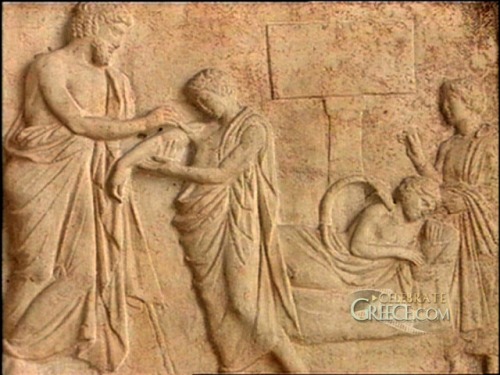8 Facts about Ancient Greek Medicine
If you want to know the ways the ancient Greeks cure the wound or diseases, you have to look at Facts about Ancient Greek Medicine. The medicine used by the ancient Greeks involved with the physical and spiritual features. The ideologies and theories involved with ancient Greek medicine were influenced by the mind set, social class, geographic location, gender, humors, trauma, diet, beliefs and social class. Here are the details of ancient Greek medicine:
Facts about Ancient Greek Medicine 1: the illness
The ancient Greek viewed the illness that they experienced as the divine punishment. If they were fully cured, they believed that it was the gift from the Gods.
Facts about Ancient Greek Medicine 2: gender
The medicine used the cure the disease experienced by the men and women were different. They believed that gender took part to determine the medicine.
Facts about Ancient Greek Medicine 3: geographic location and social class
The health of the people in ancient Greece was affected by the social class and geographic location. The poor people had to face different environmental problems which caused the decrease in their health. They did not have clean access to drinking water. They were prone to rats and mosquitoes. Check out alternative medicine facts here.
Facts about Ancient Greek Medicine 4: Humoral theory
Humoral theory sets the foundation of ancient Greek medicine. They believed that the four humors blood black bile, yellow bile and phlegm should come in perfect balance if they wanted good health.
Facts about Ancient Greek Medicine 5: Father of Modern Medicine
Father of Modern Medicine came from Greece. He is Hippocrates. This man is the most influential figure in ancient Greek medicine. He also created a medical school at Kos.
Facts about Ancient Greek Medicine 6: the Hippocratic Oath
The Hippocratic Oath is still used until today in the medical world. Do you know that the Hippocratic Oath was set by Hippocrates and his students? They studied some illnesses which affected the Hippocratic Corpus?
Facts about Ancient Greek Medicine 7: clubbing of the fingers
Hippocrates also took the credit as the first person who described the clubbing of fingers. Do you know that it is an important diagnostic sign for cyanotic heart disease, lung cancer and lung disease? People often called the clubbed fingers as “Hippocratic fingers”.
Facts about Ancient Greek Medicine 8: Galen
Another important figure who contributed a lot in the ancient Greek medicine was Gales. He was a scientist and a doctor.
Are you interested with facts about ancient Greek medicine?







